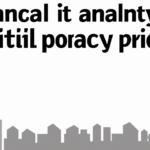Policy responses to address income inequality are crucial for promoting social and economic stability. One effective approach is to implement progressive taxation systems that require high-income individuals to pay a larger share of their earnings in taxes. This can help redistribute wealth and provide resources for social programs that benefit the less fortunate. Additionally, governments can invest in education and job training programs to ensure that individuals from disadvantaged backgrounds have equal opportunities to succeed. Strengthening labor market regulations, such as enforcing minimum wage laws and ensuring fair working conditions, can also help reduce income inequality. Additionally, expanding access to affordable healthcare and social welfare programs can provide a safety net for those struggling with low incomes. These policy responses play a vital role in creating a more equitable society.
Table of Contents
- Causes of income inequality
- Education and skill-building initiatives
- Impact of income inequality on society
- Minimum wage policies
- Wealth redistribution measures
(Income and Wealth Inequality: Crash Course Economics #17)
Income inequality is a pressing issue that affects societies worldwide. To address this problem, policymakers have implemented various policy responses.
One approach is progressive taxation, where higher income individuals are taxed at higher rates. This helps redistribute wealth and reduce income disparities. Governments can also introduce policies that reduce tax evasion and promote tax compliance, ensuring that all individuals contribute their fair share.
Investing in education and skills training is another effective policy response. By providing quality education to all segments of society, individuals have a better chance of securing higher-paying jobs. This helps level the playing field and reduce income inequality.
Social welfare programs are crucial in addressing income disparities. Governments can implement policies like unemployment benefits, healthcare coverage, and affordable housing initiatives. These programs provide a safety net for those in need, ensuring that basic needs are met and reducing the gap between the rich and the poor.
Minimum wage legislation is another tool used to address income inequality. By setting a minimum wage that is above the poverty line, workers are guaranteed a decent standard of living. This helps lift people out of poverty and reduces income inequality.
Lastly, promoting inclusive economic growth is essential. Policies that focus on job creation, entrepreneurship, and investment in productive sectors can help generate more opportunities for all. This creates a more equitable society where individuals have equal access to economic resources.
In conclusion, addressing income inequality requires a multi-faceted approach. Progressive taxation, education and skills training, social welfare programs, minimum wage legislation, and promoting inclusive economic growth are some policy responses that can help reduce income disparities and create a more equitable society for all.
Causes of income inequality
Income inequality is a significant issue that affects societies worldwide. Understanding the causes of this problem is crucial for policymakers seeking to address it effectively. Several factors contribute to income inequality.
Firstly, technological advancements have played a significant role in widening the income gap. Automation and digitalization have led to job losses in certain industries, primarily impacting low-skilled workers. Those with specialized skills and education are more likely to benefit from these advancements, resulting in increased inequality.
Secondly, globalization has both positive and negative impacts on income inequality. While it has facilitated the expansion of markets and increased economic growth, it has also led to a concentration of wealth in the hands of a few individuals and multinational corporations. This concentration of power and resources further exacerbates income inequality.
Thirdly, changes in labor market dynamics have contributed to income inequality. The decline of unions and their weakening bargaining power has led to stagnating wages for workers. Additionally, the rise of contract work and the gig economy has increased income volatility and insecurity for many individuals, further contributing to inequality.
Another significant factor is the role of educational disparities. Access to quality education plays a crucial role in determining an individual’s earning potential. Limited access to quality education, particularly for marginalized communities and disadvantaged individuals, traps them in a cycle of poverty and exacerbates income inequality.
Furthermore, the tax policies and welfare systems implemented by governments also contribute to income inequality. Regressive tax systems and inadequate social safety nets disproportionately favor the wealthy and fail to address the needs of the most vulnerable populations.
Additionally, discrimination and social barriers based on race, gender, and ethnicity also play a significant role in perpetuating income inequality. These forms of structural inequality result in unequal access to opportunities, higher employment rates, and lower wages for marginalized groups.
In conclusion, income inequality is a complex issue with multiple causes. Technological advancements, globalization, labor market dynamics, educational disparities, tax policies, and discrimination all contribute to the widening wealth gap. Recognizing these causes is crucial for policymakers to formulate effective strategies to address income inequality and promote a more equitable society.
Education and skill-building initiatives
Education and skill-building initiatives are crucial in addressing income inequality by providing individuals with the tools and knowledge necessary to improve their economic prospects. These initiatives aim to bridge the gap between the skills demanded by the job market and the skills possessed by potential workers.
One such initiative is vocational training programs, which offer practical training in specific trades or industries. These programs equip individuals with the skills needed to secure well-paying jobs in sectors such as construction, healthcare, and information technology. By focusing on practical skills, vocational training programs empower individuals to enter the workforce with marketable skills, increasing their earning potential and reducing income inequality.
Another key education initiative is increasing access to quality education for underserved communities. This includes improving the infrastructure of schools, providing resources such as textbooks and technology, and recruiting and retaining qualified teachers. By ensuring that all individuals have access to a quality education, regardless of their socioeconomic background, we can help level the playing field and create equal opportunities for upward mobility.
Additionally, lifelong learning initiatives are essential in today’s rapidly changing job market. These initiatives promote continuous learning and upgrading of skills throughout an individual’s career. By providing opportunities for workers to gain new knowledge and abilities, these initiatives enable them to adapt to technological advancements and industry changes, ensuring their employability and reducing the risk of income disparities.
Furthermore, entrepreneurship education can play a significant role in addressing income inequality. By equipping individuals with the skills and knowledge to start and run their own businesses, entrepreneurship education empowers individuals to create their own economic opportunities. This not only reduces dependence on traditional employment but also allows individuals to build wealth and contribute to the overall economy.
In conclusion, education and skill-building initiatives are crucial in addressing income inequality. Through vocational training programs, increased access to quality education, lifelong learning initiatives, and entrepreneurship education, individuals can acquire the skills necessary to secure better-paying jobs, adapt to changes in the job market, and create their own economic opportunities. By investing in education and skill-building, we can create a more equitable society where everyone has the chance to thrive and succeed.
Impact of income inequality on society
Income inequality has a profound impact on society. It creates divisions among people that can lead to social unrest. When the gap between the rich and the poor widens, it fuels feelings of resentment and injustice. This can result in a breakdown of social cohesion and trust.
One major consequence of income inequality is that it restricts economic mobility. When a few individuals control a significant proportion of wealth, it becomes harder for others to climb the social ladder. This stifles innovation and prevents the emergence of new ideas and talents.
Moreover, income inequality exacerbates health disparities. The poor, who have limited access to healthcare, face higher rates of illness and shorter life expectancies. On the other hand, the wealthy can afford top-notch medical care, ensuring better health outcomes and longer lives. This disparity in health status further reinforces the cycle of inequality.
Education is also affected by income inequality. High-quality education often comes with a hefty price tag, making it inaccessible to many. Children from low-income families are thus disadvantaged from the start, facing limited opportunities to excel academically. This perpetuates intergenerational poverty and reduces social mobility.
Furthermore, income inequality affects social and political power dynamics. Wealthy individuals have greater influence over policy decisions, leading to policies that benefit the rich at the expense of the poor. This undermines the principles of democracy and leads to a concentration of power in the hands of a few.
The impact of income inequality is not limited to individuals. It also harms the overall economy. When a large portion of the population struggles to make ends meet, there is less demand for goods and services. This hampers economic growth and exacerbates income inequality even further.
To address the impact of income inequality on society, policy responses are crucial. These can include measures such as progressive taxation, investment in education and healthcare, and providing social safety nets. By implementing these policies, societies can aim to reduce the gap between the rich and the poor, fostering greater equality and social cohesion.
In conclusion, income inequality has far-reaching consequences for society. It hinders economic mobility, worsens health disparities, limits access to education, distorts power dynamics, and weakens the overall economy. Policy responses must be implemented to address these challenges and promote a fair and inclusive society.
Minimum wage policies
Minimum wage policies are a crucial aspect of policy responses aimed at addressing income inequality. These policies have a direct impact on the standard of living for low-income workers and can help narrow the wealth gap.
The concept of minimum wage refers to the lowest legal remuneration that employers must pay to workers for their services. By setting a minimum wage, governments aim to ensure that workers receive fair compensation for their work, preventing exploitation.
The implementation of minimum wage policies can have several positive effects. Firstly, it can lead to improved income distribution, as it puts a floor beneath which wages cannot fall. This means that even the lowest-paid workers will have a guaranteed income that allows them to meet their basic needs.
Furthermore, minimum wage policies can stimulate economic growth by increasing the purchasing power of low-income individuals. When workers have more money to spend, they are likely to contribute more to consumer demand, leading to increased business activity and job creation.
Critics of minimum wage policies argue that they can have negative consequences, such as job loss and reduced opportunities for small businesses. They claim that by mandating higher wages, employers may be reluctant to hire as many workers or even lay off existing employees to compensate for the increased costs.
However, empirical studies on the impact of minimum wage policies have shown mixed results. While some studies suggest that higher minimum wages can lead to job losses, others find no significant negative effects or even positive outcomes.
To ensure that minimum wage policies effectively address income inequality, it is essential to consider regional economic conditions and the specific needs of different industries. A one-size-fits-all approach may not be suitable in all cases, as the cost of living and economic development can vary greatly between regions.
In conclusion, minimum wage policies play a vital role in addressing income inequality. By setting a wage floor, these policies protect workers from exploitation and can stimulate economic growth. While there may be concerns about potential job losses, careful implementation and consideration of regional factors can help maximize the positive impact of these policies on reducing income inequality.
Wealth redistribution measures
Wealth redistribution measures are policy interventions aimed at reducing income inequality by transferring resources from the wealthy to the less affluent members of society. These measures are often implemented through a progressive tax system, where higher-income individuals contribute a larger percentage of their income towards taxes.
One common wealth redistribution measure is the implementation of a higher tax rate for individuals with higher incomes. This ensures that those who can afford to pay more contribute their fair share to society. The additional tax revenue can then be used to fund social programs and services that benefit low-income individuals and families, such as education, healthcare, and social welfare programs.
Another approach to wealth redistribution is the introduction of income transfer programs. These programs provide direct financial assistance to individuals and families with lower incomes, helping them meet their basic needs and improve their quality of life. Examples of income transfer programs include social security, welfare, and unemployment benefits.
In addition to taxation and income transfer programs, some countries have implemented measures to address the concentration of wealth in the hands of a few individuals. This can be done through measures such as wealth taxes, where individuals are taxed based on the value of their assets. By redistributing wealth from the rich to the poor, these measures aim to create a more equitable society and reduce the gap between the rich and the poor.
However, wealth redistribution measures can be a source of controversy and debate. Critics argue that these measures disincentivize hard work and innovation, as higher taxes can reduce the financial rewards for success. They claim that a more merit-based society, where individuals are rewarded based on their skills and efforts, is a fairer and more efficient system.
Proponents of wealth redistribution argue that it is necessary to address the social and economic disparities that arise from income inequality. They believe that a more equitable distribution of wealth can lead to greater social stability, increased social mobility, and improved overall well-being for all members of society.
In conclusion, wealth redistribution measures are policy responses aimed at reducing income inequality by transferring resources from the wealthy to the less affluent. These measures can take various forms, such as progressive taxation, income transfer programs, and the taxation of wealth. While these measures can be controversial, proponents argue that they are essential for creating a more equitable society.













